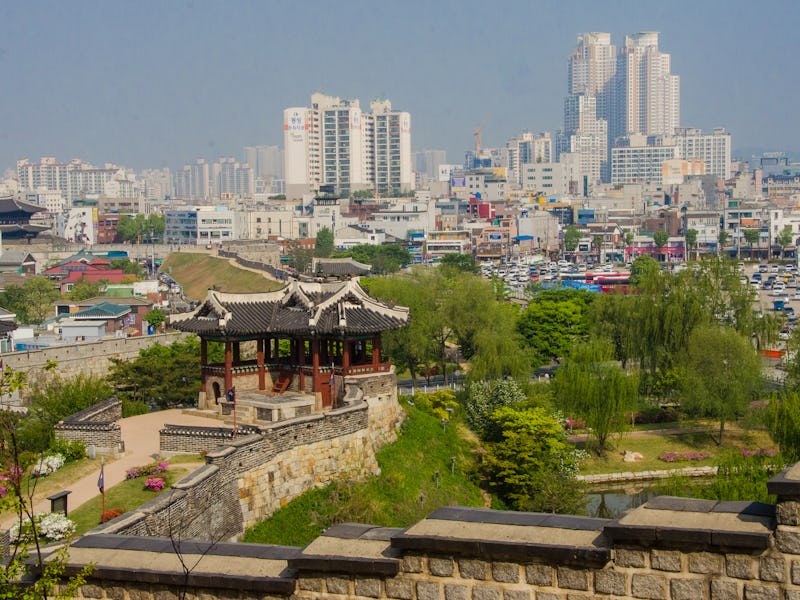Universal Basic Income: 170K Young Koreans Will Get $883 to Spend Locally
Gyeonggi province is proposing a new plan.

A radical new scheme plans to give 24-year-olds in one South Korean province a universal basic income with hardly any conditions. The plan will see around 170,000 people receive the equivalent of one million won ($883) per year, but unlike similar schemes that pay participants in the national currency, this one will use a special provincial currency aimed at exchanging with small local businesses.
“The youth dividend is a type of basic income for young people,” Lee Jae-myung, governor of the Gyeonggi province that will host the scheme, said in November 2018 when he announced the budget. Jae-myung is the former mayor of Seongnam, the second-largest city in the province, where he introduced a similar scheme in 2015. “I want to expand this to all young people [and not just 24-year-olds] to create a basic income for the youth.”
It’s a potentially big step for basic income, which advocates argue would provide recipients with a guaranteed safety net to protect against A.I. and robotics automating new jobs. A trial in Finland that gave 2,000 unemployed Finns €560 ($634) per month showed participants were happier and felt more secure on the same levels of household income. Another trial in Canada involving 4,000 people found people reported feeling healthier as they could afford better food. Andrew Yang is running for the American presidency on a $1,000-per-month basic income ticket, while Rahul Gandhi is proposing a similar idea in India’s election.
The South Korean scheme takes up 175.3 billion won ($153 million) of the province’s 24.36 trillion won ($21.5 billion) budget for this year. The costs will be split between the province and its constituent cities and counties at a ratio of seven to three. Similar to other trials, the results of the scheme will be analyzed by the Gyeonggi Research Institute.
South Korean won.
While the choice of currency is an interesting quirk, it isn’t without precedence. In an age of instant-buy purchases from global corporations like Amazon, local currencies can help smaller businesses thrive. The Bristol Pound, the United Kingdom’s largest local currency, launched in 2012 and paved the way for similar schemes like the Exeter Pound. In the United States, the BerkShares in Massachusetts’ Berkshire region are accepted at over 400 local businesses.
Local currencies have strong proponents outside of the basic income sphere. The Guardian argues that traditional currencies fail as they “burden the public with debt and don’t put new money into circulation when and where it is most needed.” The New York Times described BerkShares as a “great socioeconomic experiment,” though noted that locals complained about the greater degree of complexity versus standard dollars.
“Given that the local currency can be only be used in small businesses of the province, it could stimulate the local economy and provide the base for a broader coalition in support of the basic income program, and basic income in general,” Hyosang Ahn, executive director of the Basic Income Korean Network, wrote in a Tuesday post. “Moreover, basic income can be regarded as part of a broader reimagining of society, and local currencies are a way to reconstruct social economies and could be part of that reimagining.”
The province plans to launch its scheme at an event on April 29 and 30. The event will include participation from 31 cities and counties, enabling people to buy local goods using the currency. The conference will then host keynote speeches from basic income advocates like Annie Miller, co-founder of the Basic Income Earth Network that organizes international action.
In the same month that Sheffield campaigners argue for a basic income to help those left behind, Gyeonggi’s plan could help locals in a new way by placing the focus on small business.